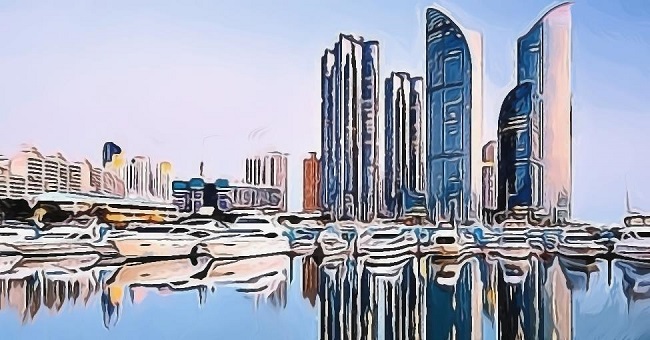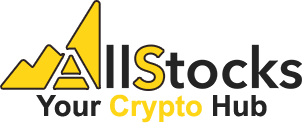- Telecommunications Giant Vodafone Leaves the Libra Association
- Group of Central Banks Assesses Developing Central Bank Digital Currencies
- South Korea Might Impose 20 Percent Tax on Cryptocurrency Profits
- Report: Terrorists Increasingly Use Crypto to Raise Funds Anonymously
- Canadian Securities Administrators Subject Crypto Exchanges to Securities Laws
South Korea’s Government Assigns Busan as Blockchain Regulation-Free Zone

The South Korean government has recently designated the second-largest city by population in the country, Busan, as a “regulation-free zone” for crypto and blockchain firms, in which they will be able to pursue their developments without worrying about regulations.
The government of South Korea is planning to test Busan for “token economy,” where users will be rewarded with digital tokens for their contribution in project developments.
It is important to note that cryptocurrency-related businesses will not be enjoy the benefits of operating in the blockchain regulation-free zone. In other words, companies dealing with cryptocurrencies will not be exempted from the regulations.
As per the new policy in Busan, blockchain-based firms will be exempted from the sum of total 11 regulations, which in result could potentially bring in multi-million-dollar investments to Busan. The government believes that lifting regulations for blockchain firms and applying it to local industries like retail, tourism, hospitality, finance, etc. will lead the city toward ‘blockchain industrialization.’
Apart from Busan, it was decided by South Korea’s Regulation Free Zone Committee to designate six other regulation-free zones for various purposes. The meeting took a place in Seoul on July 23rd and it was spearheaded by prime minister Lee Nakyeon.
One of these particularly-exempted areas is of course Busan, which is designed as a Regulation free Zone for blockchain initiatives. Other provinces and cities designated as regulation-free zones includes Jeonnam province (regulation-free zone for developments in e-mobility) Kangwon province (for digital healthcare companies) Daegu City (for smart wellness), Gyeongbuk province (for next-generation battery recycle technology), Chungbuk province (for smart safety) and Sejong city (for autonomous driving).
Kim Hyeonsuk, the head of the Converged Industry team of Busan City, explained:
“Busan has a solid industrial bedrock as the city of financial hub, tourism, and logistics & maritime. It can draw bigger synergy when blockchain is applied as our industrial infrastructure is already established, and this was the critical point to be selected in the process of designation.”
Companies that will operate in the Regulation Free Zone of Busan will be encouraged to address key areas of future logistics system, smart tourism, public safety and issuance of digital tokens. Companies’ blockchain-related initiatives such as BPN Solutions, Busan Bank, Hyundai Pay, Coinplug, Korea Tour Pass, etc. will be some of the ventures exempted from regulations.
The city may invite more companies to take part in its blockchain-focused projects and further boost blockchain development in the city. Busan is planning to flow in 29.9 billion won (about $25 million) into selected 11 special inner-regions such as Munhyeon Innovation District, Centum Innovation District, and Dongsam Innovation District by 2021.
Digital favorites
- Siti Di Scommesse
- Casino Bonus Senza Deposito Immediato
- Best Casinos Not On Gamstop
- Casinos Not On Gamstop
- UK Casinos Not On Gamstop
- Non Gamstop Casinos
- UK Casinos Not On Gamstop
- Casino Not On Gamstop
- Non Gamstop Casino
- Slots Not On Gamstop
- Meilleur Casino En Ligne France
- Gambling Sites Not On Gamstop
- オンライン カジノ おすすめ
- Gambling Sites Not On Gamstop
- Non Gamstop UK Casinos
- UK Casino Sites Not On Gamstop
- UK Casinos Not On Gamstop
- Non Gamstop Casinos UK
- Non Gamstop Casino Sites UK
- Best Slot Sites
- UK Online Casinos Not On Gamstop
- Best Non Gamstop Casino
- Best Sports Betting Sites Not On Gamstop
- Meilleur Casino En Ligne
- Migliori Casino Online
- Meilleur Site De Casino En Ligne
- Pari Sportif Belgique
- Siti Casino
- Meilleur Site De Paris Sportif International
- 익명 카지노
- Fm 카지노
- Casino Sans Verification
- Real Money Casino App No Deposit
- Siti Non Aams Bonus Senza Deposito
- Casino Non Aams
- Meilleur Casino En Ligne Belgique
- Site De Poker
- Casino En Ligne 2026
- Meilleur Casino En Ligne 2026
- Casino Online Non AAMS





